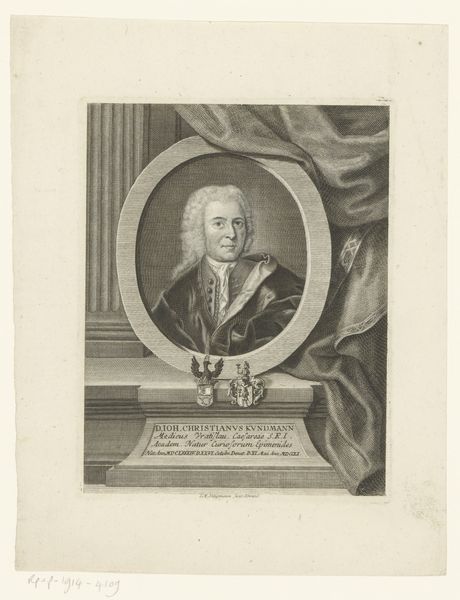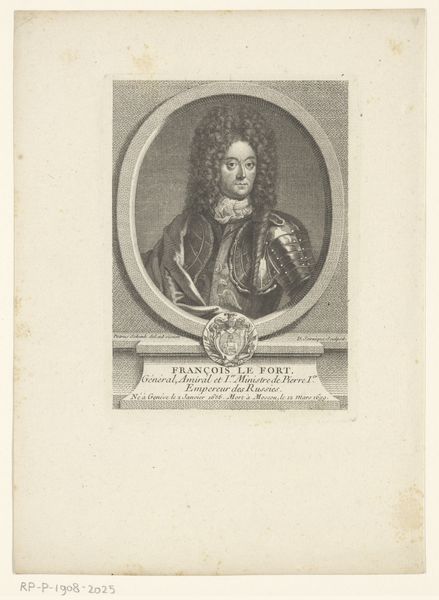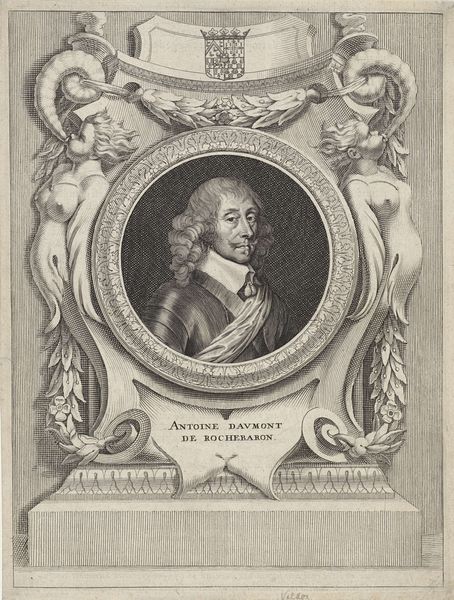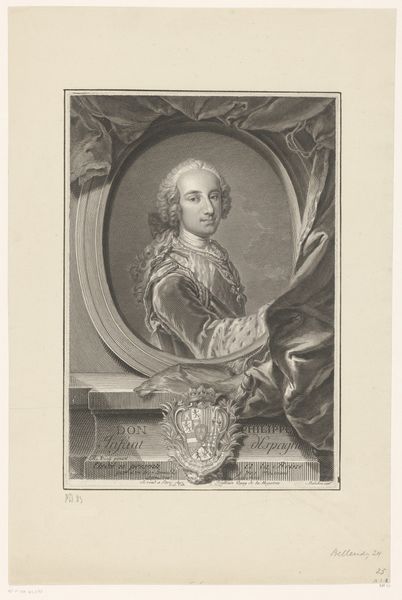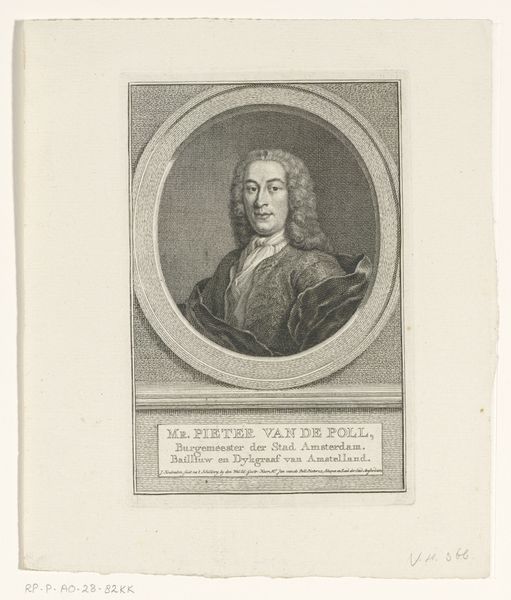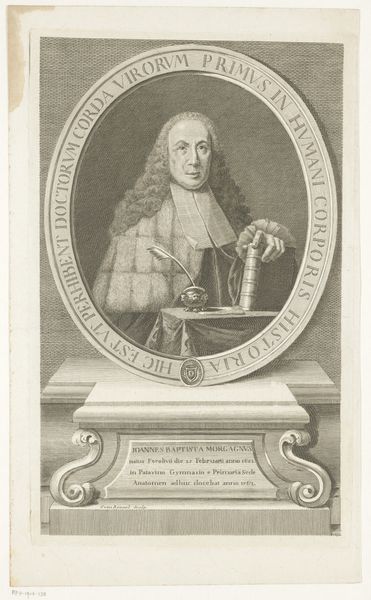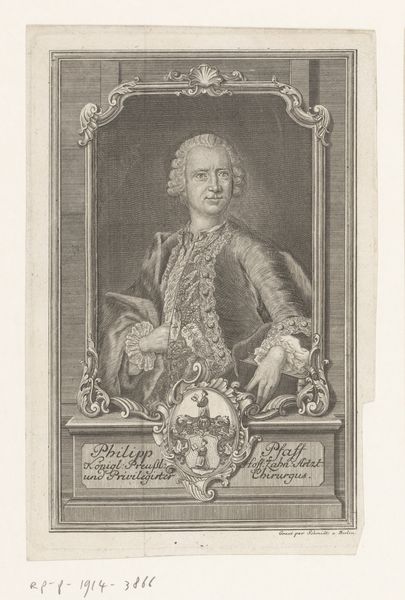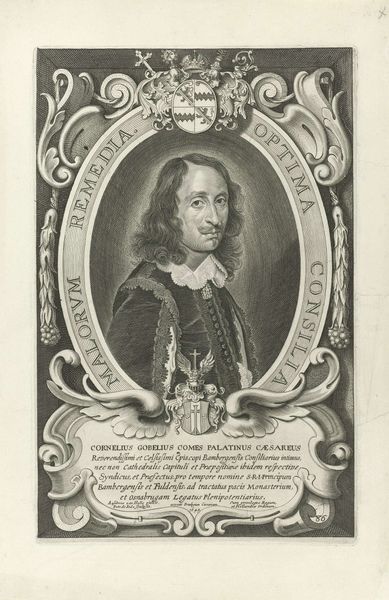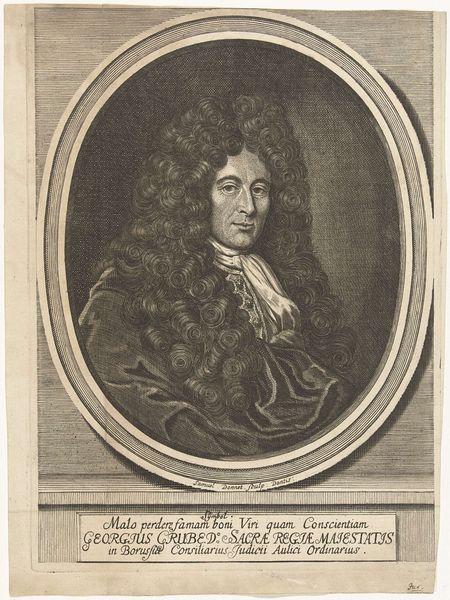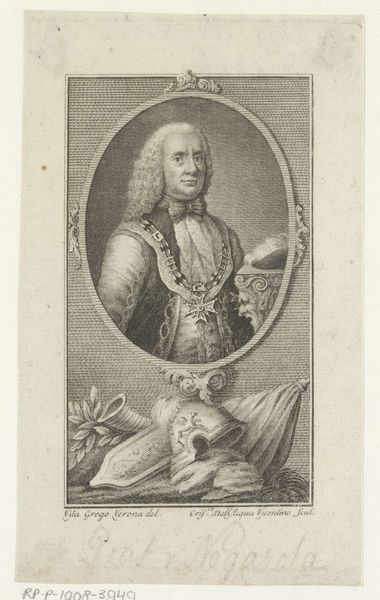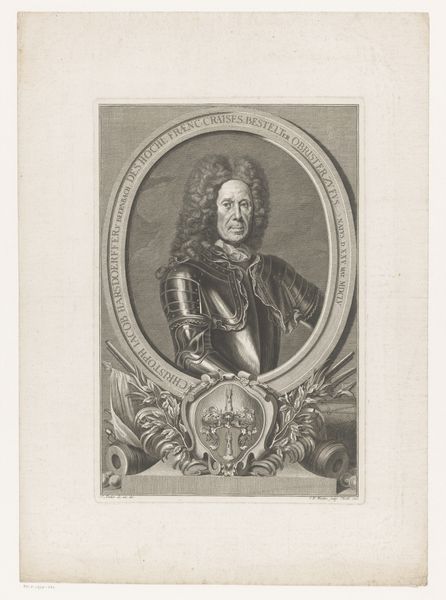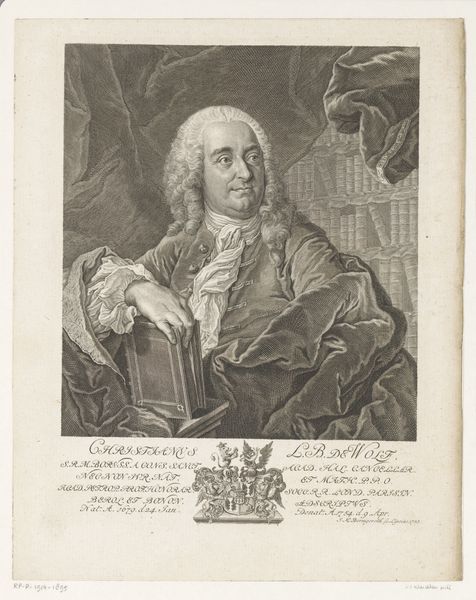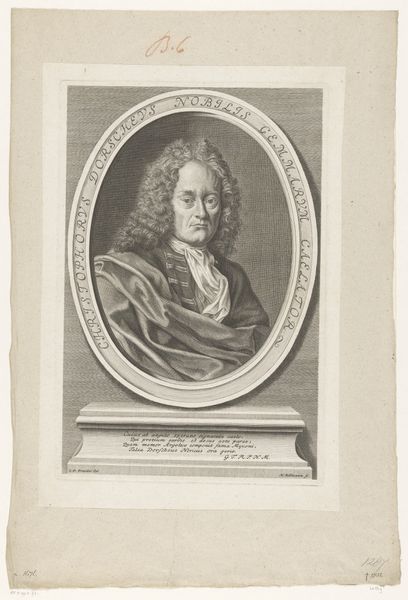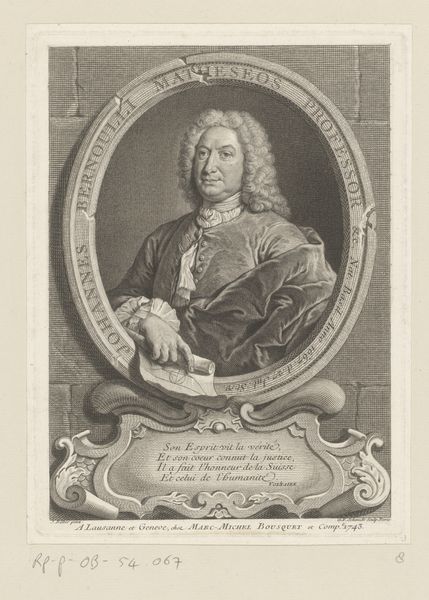
Dimensions: height 198 mm, width 132 mm
Copyright: Rijks Museum: Open Domain
Editor: This is "Portret van Willem II, prins van Oranje," a print from circa 1755-1785, housed at the Rijksmuseum. The fine lines and the sitter's somewhat stern expression give it a formal, imposing air. What can you tell me about this portrait from a historical point of view? Curator: Well, immediately, the presence of the armor and symbols of authority are crucial. How are we meant to view Willem II through this imagery? Is it straightforward commemoration, or does it do other work? For instance, notice the depiction of the signing of a peace treaty, very small beneath the portrait; this positions Willem within a certain political narrative. These prints were not simply about likeness; they shaped public memory. Editor: So, you’re saying that its purpose was to craft a certain image of Willem II, connecting him to peace and strength. Does the fact that it is a print, and thus easily reproducible, change the significance? Curator: Precisely! Think about the accessibility. Who was the audience for these images? Reproducibility democratized access, but also allowed for greater control. This engraving creates a public figure, one meant for circulation and, ultimately, for cementing a particular understanding of his legacy, of Orange authority itself. Who funded its creation and what would that suggest? Editor: That's fascinating, thinking about it as more than just a portrait but as a carefully constructed piece of political communication aimed at a broad audience. I’ll definitely look at these portraits differently now. Curator: Exactly, seeing art as part of its political world deepens our comprehension.
Comments
No comments
Be the first to comment and join the conversation on the ultimate creative platform.
